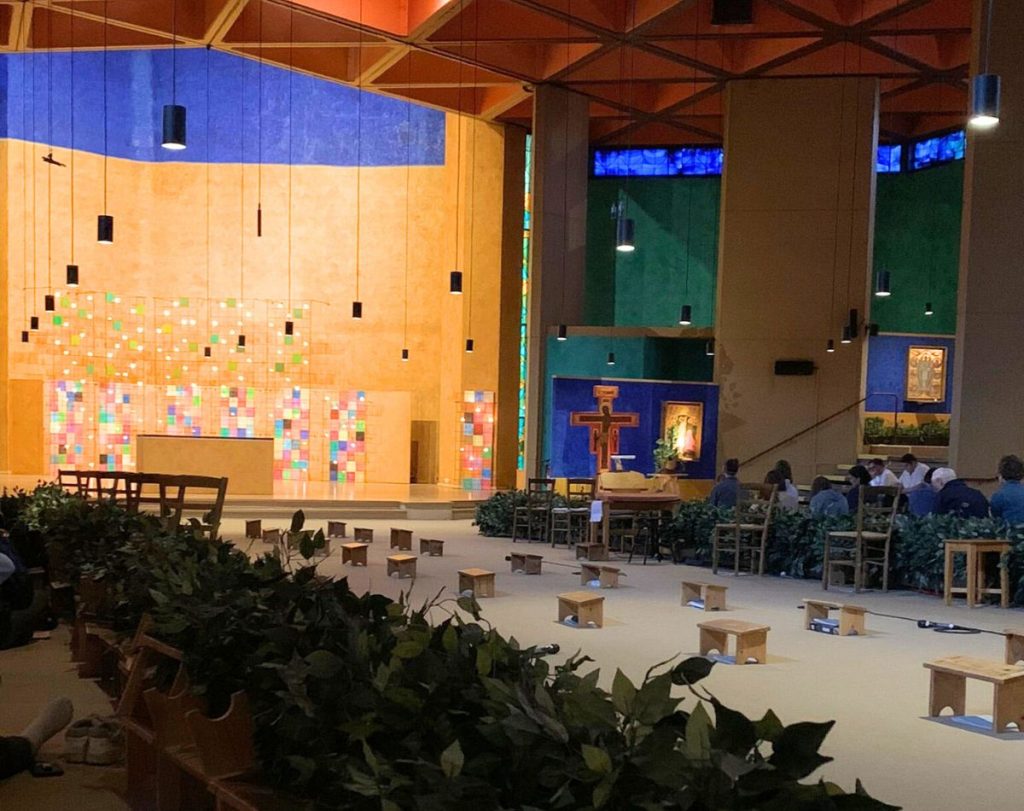Ellmina Mckenzie is a member of the leadership team at the New Testament Church of God (NTCG) in Wolverhampton. She is training to be a Pastor and is on the Emerging Ministers course at St Mellitus Theological College, where members of Pentecostal churches learn alongside their peers in the Church of England.
Initially, things didn’t go to plan. In my grant application, I applied to do a course at Utrecht University relating to Anglicanism from a European perspective. Unfortunately, this course was cancelled at short notice due to low numbers. I was highly disappointed and disheartened, and so I prayed about the situation. I felt compelled to go back to the Bill Snelson Fund website to see if there were any other experiences I could go on in the summer of 2024, and I noticed the trip to Taizé. I’m really glad with how it all turned out, and I believe it was all part of God’s plan
When I first arrived in Taizé, France, I was taken aback. I wasn’t sure what to expect, but the simplicity and the rhythm of life in this peaceful village were initially a shock to my senses. No bustling city streets, no distractions of modern life. The quiet mornings, the stillness of the hills, and the absence of technology made me realize how deeply entrenched I had become in the noise of the world.
The daily routine in Taizé was unlike anything I had experienced before. The days were simple yet profoundly structured – rhythms of prayer, work, and silence interwoven with moments of communal living. One of the first things that stood out to me, and that I had to get used to, was the breakfast. In the early mornings, a long line of pilgrims would gather in a modest cafeteria, where the breakfast was as simple as it gets: a baguette and a chocolate stick or jam. At first, I couldn’t help but feel that something was missing—perhaps a warm, more substantial breakfast to start the day? Yet, over time, I began to appreciate the simplicity of it. It reminded me that we don’t need much to nourish ourselves—just the basics of life.
What truly became the heart of my time in Taizé was the solitude. I sat alone with God, reflecting, praying, and reading my Bible. Without the distractions of the outside world, I could hear God more clearly. I would spend hours sitting in a quiet corner of the chapel or walking alone in the fields, Bible in hand, letting the words sink deep into my heart. The simplicity of this time, spent in intimate conversation with God, was deeply grounding.

Taizé became a place of renewal for me—a place where I could reconnect with what truly matters. In those moments of solitude, as I spent time in prayer and reflection, I found a deep sense of peace. I realised how much I had been rushing through life, how much noise I had allowed to fill my days, and how little time I had truly dedicated to God and to my inner self.
The ecumenical spirit
When I first arrived at Taizé, I wasn’t fully aware of the significance of its ecumenical spirit. The moment I stepped into the community, I realized that Taizé was a place where differences were not just tolerated but celebrated. The diversity of worship and fellowship, rooted in a shared love for Jesus Christ, became one of the most enriching aspects of my time there.
What stood out to me most was the sense of unity in worship. Each day, we gathered in the chapel for the famous Taizé prayer services. The services were designed not to emphasise any particular tradition but to bring us together in common prayer. Regardless of our denominational backgrounds, we all sang the same simple, melodic prayers, often in different languages, yet still united in spirit. It wasn’t about doctrine; it was about a shared experience of God’s presence.
My ecumenical experience at Taizé has helped me embrace the beautiful tapestry of Christianity, where each thread, while different, contributes to the overall picture of God’s kingdom. It reminded me that unity in Christ is about a shared love for God and one another. The experience gave me a deeper sense of humility, a recognition that the richness of the Christian tradition is found not in agreement on every point, but in the willingness to learn, grow, and love together. That’s something I’ve already taken back to my home church and have discussed with my Pastor.
At Taizé, I learned that our differences are not something to shy away from but something to embrace as part of the richness of the body of Christ.
By the end of my time in Taizé, what had initially felt like a shock had become a source of nourishment for my spirit. I discovered a deeper peace, one that I carry with me long after I left the hills of Taizé behind. In the end, Taizé was not just a place of spiritual retreat; it was a place of transformation.